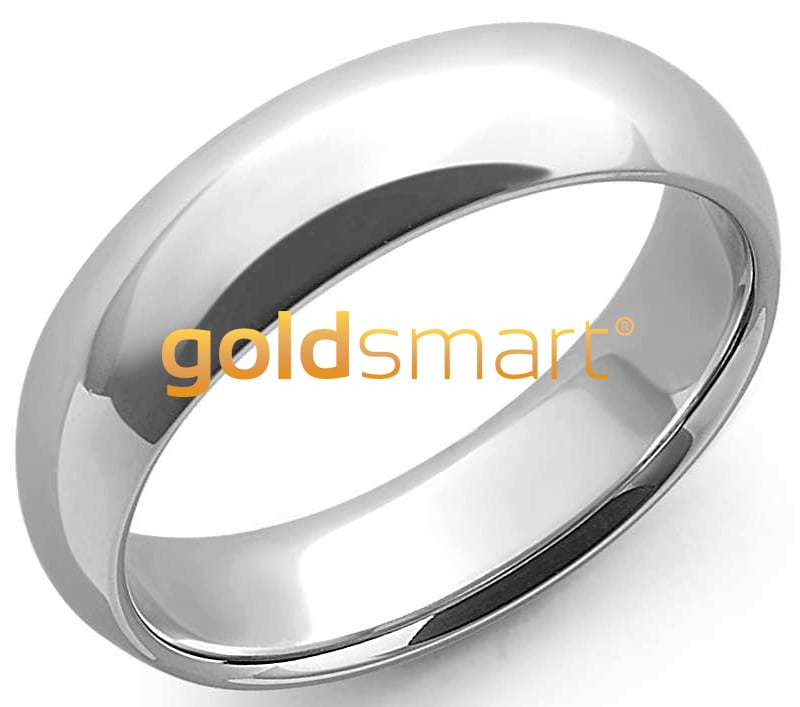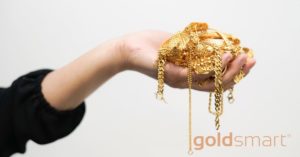
Most people know gold is valuable yet many are unaware that there are several different types of gold. Aside from regular yellow gold, rose gold and white gold also exist. Yet white gold does not have a glaringly white or beige hue. It is referred to as white gold partially due to the fact that it is a man-made metal.
A Look at White Gold
White gold is actually an alloy. This means it is a metal that does not naturally appear in nature. White gold alloy is man-made by combining a minimum of two metallic elements together to form a metal greater than the sum of its parts. The particular combination of metallic elements differs from the desires of the individual creating white gold alloy. Natural gold is commonly mixed with white metals like zinc, palladium, nickel, and copper to create white gold alloy.
Why the Creation of White Gold is Necessary
If one were to make jewellery and other pieces with pure gold, it would backfire as pure gold is quite fragile. A piece made of pure gold would eventually break or warp after months/years of handling, jostling, and general wear and tear. This is part of the reason why metallic elements are mixed with pure gold to create white gold alloy.
Metallic elements like palladium and platinum strengthen the gold and also serve to create a visual warmth that can’t be matched by other metals. In particular, the addition of nickel and copper make gold extremely durable. The presence of either of these metals also makes gold appear colder than it would when mixed with other metals like palladium. Zinc is also commonly added to gold alloys to even out its aesthetic.
An Explanation of White Gold Alloy’s Worth
Every type of gold, including white gold alloy, is measured in karats. A large number of karats means the gold has a high value. The highest karat level is 24 karats. This number of karats represents the utmost purity with 99.7 percent of its weight consisting of pure gold. The percentage of gold does not differ by the variety of metals used to create white gold. As noted above, these added metals certainly change white gold’s aesthetic.
The Basics of White Gold Jewellery
Just about every type of jewellery uses white gold alloy. All in all, white gold alloy is the second most popular version of gold used in the creation of jewellery. White gold alloy is used in everything from brooches to necklaces, rings, earrings, bracelets, and beyond. Since a growing number of people are allergic to nickel, fewer jewellery makers are using this metal for their pieces. Older pieces of jewellery are much more likely to contain nickel than newer ones. Yet nickel is still used in rings and pins due to the metal’s rugged character. Its addition makes these vulnerable pieces extremely rigid.
Gold buyers and those interested in selling white gold should be aware of the fact that each piece of white gold jewellery contains plating made of rhodium metal to make it look more gold-like. If this plating was not added, the metal would not appear white. The final hue hinges on the type of metal mixed with traditional gold. Rhodium plating provides a lovely white hue while the addition of other metals will create a pink, grey, or brown hue. The rhodium plating of white gold jewellery must be replated from time to time in order to maintain its beautiful colour. This replating is necessary as rhodium eventually wears away in the ensuing months and years.
It must be noted that there is a difference between rhodium plating and gold plating. The presence of gold plating indicates the piece is primarily made of a metal besides gold. The gold plating is implemented as a layer above this base metal. Do not hesitate to have your jewellery replated. This process will ensure that your piece looks as visually pleasing as possible. Replating is surprisingly cheap and simple.
Gold Smart New Zealand is at Your Service
If you are looking to sell your white gold alloy of any variety, Gold Smart is here to help. We offer fair prices, friendly customer service, and completely honest assessments. Our gold buyers New Zealand business is also interested in your scrap gold, silver, platinum, and palladium. Reach out to us today at 0800 465 376 to learn more.
